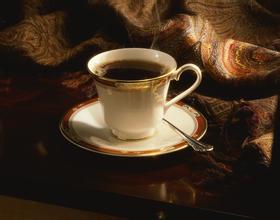Boutique Jamaican coffee bean coffee producing area manor introduces the price of Jamaican Blue Mountain Coffee
The Jamaica Coffee Industry Board was established by the Government of Jamaica in 1950 to establish quality standards for Jamaica coffee and oversee the implementation of quality standards to ensure the quality of Jamaica coffee. The Commission awards a special official seal to Jamaica's exports of green and roasted coffee and is the world's highest national coffee authority. Those that can represent the origin of Blue Mountain Coffee include Mavis Bank Coffee Factory (M.B.C. F), Blue Mountain Coffee Cooperative Factory (M.H.C.C.T.), Portland Blue Mountain Coffee Cooperative Plant (P.X.X.S.H.), Coffee Industry Association (Wallenford), Coffee Industry Association (St. John's Peak) and Blue (J.A.S.) 6 kinds of logo.
By 1969, the situation had improved, as Japanese loans had improved the quality of production and thus secured the market. By now, the coffee has reached the point of being fanatically loved.
By 1981, about 1500 hectares of land in Jamaica had been cleared for coffee, followed by another 6000 hectares. In fact, today's Blue Mountain region is a small area of only 6000 hectares, and it is impossible that all the coffee labeled "Blue Mountain" is grown there. Another 12000 hectares are devoted to growing two other types of coffee: alpine premium coffee and Jamaica premium coffee.
geographic
Blue Mountains of Jamaica
Blue Mountains of Jamaica
Blue Mountain Coffee is the world's premier coffee, and Jamaica's weather, geology and terrain combine to provide the ideal location. Ridges running through Jamaica extend to the east of the island, and the Blue Mountains rise to more than 2100 meters. The weather is cool, foggy and rainy frequently. Use this rich soil to harmonize with rainwater. Here, coffee trees are grown in a mixed cropping system, alongside banana and avocado trees on terraces. Some small farms are also planted. But even the region's largest planters are small-scale farmers by international standards, many of them smallholders whose families have been working for two centuries. The coffee industry in Jamaica faces a number of problems, such as the impact of hurricanes, increased labour costs and difficulties in mechanising terraces. Many small estates and farms are difficult to rationalize.
Since Japan has always invested in Jamaica coffee industry, Blue Mountain coffee is mostly controlled by the Japanese, and they have also obtained the right of first refusal to buy Blue Mountain coffee. In 1992, Jamaica sold 688 tons of Blue Mountain coffee to Japan, 75 tons to the United States and 59 tons to Britain. 90% of Blue Mountain Coffee is purchased by Japanese. Since the rest of the world can only get 10% of Blue Mountain coffee, Blue Mountain coffee is always in short supply regardless of price.

Important Notice :
前街咖啡 FrontStreet Coffee has moved to new addredd:
FrontStreet Coffee Address: 315,Donghua East Road,GuangZhou
Tel:020 38364473
- Prev

Introduction of Mexican boutique Aldumara coffee bean flavor manor
Aldura coffee beans are the top coffee beans in Mexico. This kind of coffee beans have large particles and strong sweet, sour and good aroma. Mexico has a long history of producing coffee, and it is also one of the important coffee producing countries in the world. The coffee produced in Mexico is naturally called Mexican coffee. About 5% of Mexico's total area is plateau and mountainous area, which is flat in year.
- Next

Ethiopian coffee bean producing area of Ethiopian coffee bean flavor manor
Coffee is Ethiopia's most important export cash crop and the main source of Ethiopia's foreign exchange earnings. Ethiopia's coffee exports account for about 3% of the world market, making it the eighth largest coffee exporter in the world. Coffee exports increased steadily from 58000 tons in 1990 to 110000 tons in 1995-1996 and remained at this level in the following years. 2001-2002
Related
- Detailed explanation of Jadeite planting Land in Panamanian Jadeite Manor introduction to the grading system of Jadeite competitive bidding, Red bid, Green bid and Rose Summer
- Story of Coffee planting in Brenka region of Costa Rica Stonehenge Manor anaerobic heavy honey treatment of flavor mouth
- What's on the barrel of Blue Mountain Coffee beans?
- Can American coffee also pull flowers? How to use hot American style to pull out a good-looking pattern?
- Can you make a cold extract with coffee beans? What is the right proportion for cold-extracted coffee formula?
- Indonesian PWN Gold Mandrine Coffee Origin Features Flavor How to Chong? Mandolin coffee is American.
- A brief introduction to the flavor characteristics of Brazilian yellow bourbon coffee beans
- What is the effect of different water quality on the flavor of cold-extracted coffee? What kind of water is best for brewing coffee?
- Why do you think of Rose Summer whenever you mention Panamanian coffee?
- Introduction to the characteristics of authentic blue mountain coffee bean producing areas? What is the CIB Coffee Authority in Jamaica?

